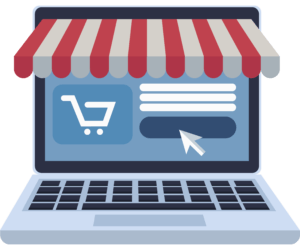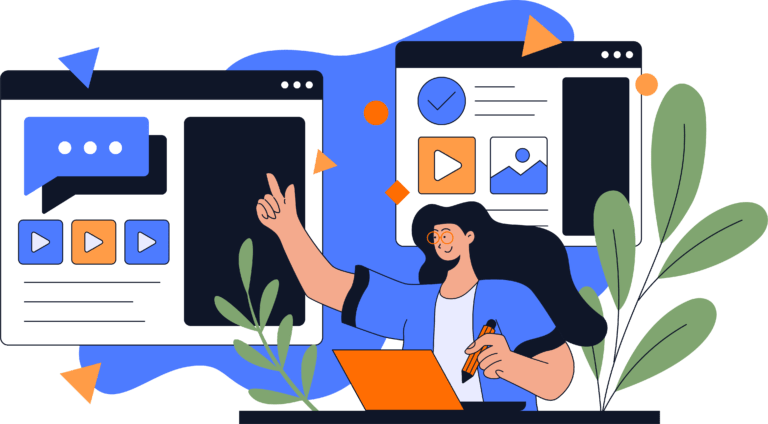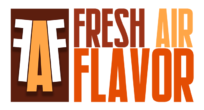It's simpler than you think.
There’s 3 main ways people make money online; selling a product, selling a service, and selling a subscription.
In my opinion and experience, selling a product is a lot easier than selling a service or a subscription.
Reasons being, when you sell a product, it’s clear to the customer what they’re buying. When you sell a service or subscription, you have to do a bit more honest convincing that what you’re selling is worth buying.
You have 2 options, make...
...an online store or pay button

...or a landing page/ contact form

Your first option is building an online store or a page with a Pay Button.
You have something to sell, your customer buys it, and is on their way.
Your 2nd option is creating a landing page where your customer signs-up for your offer.
This can be in the form of them signing up for online courses or hiring you.
You can't proceed if you haven't decided this yet.
This is your main online source of income.
If you have products, build a store and do it well.
If you have a service or a subscription, build a page that captures leads/subscribers and do that well.
You can have a combination of income streams, but you have to start with one before you can have multiple incomes. And your main income needs to be stable, otherwise your money and focus will be all over the place.
If you want clients and customers intentionally spending with you, then you must be intentional in making an easy way for them to do that.
OK...so what now? What next?
If it’s clear for you what to build first, such as an online shop or landing page, keep reading.
If you’re still stuck on a business model to go with, or maybe even the “building a brand” part, click here.
Ok, so now, comes the choice of building.
If you’re building a store, how do you want it built? Do you want a fully customizable store with website functions, or a 3rd-party store front like Shopify that handles that side for you while taking more of a cut in fees?
If you’re building a landing page; are you adding a new page to your already existing site, or are you using a 3rd-party link site like Linktree to acquire leads?
Either way is fine. Which way will depend on your budget, your abilities, and your willingness.
- You need the budget to spend on hosting the store/page (monthly or yearly)
- You need to know the basics of running an online store or page (your abilities)
- You need the willingness to keep "doing" when it's just you
As an added note, if you don’t want to or can’t manage the online-end of things, you need to factor in the cost of paying someone that can and will. This is not a cost you can avoid, when going digital.
The sharp-reality of it all, is everything has a price just like in the physical world. Where you pay a landlord rent for your business space, online you pay a “server-lord” (web-hosting company) rent for using space on their server.
The leverage of the internet, is the open(ish) access and low-overhead costs it can provide businesses. We know this especially from times like early COV-ID, where we saw businesses and organizations take off once they put an intentional focus towards their internet presence.
Below are some ways that a website can help you depending on your market, field and business.
Food-based Businesses
If you have or make food products to sell, you can have an online store that sells those products, with a landing page that acquires emails for catering orders.
If you own a restaurant, than you definitely need an online store to handle your live orders. You then can create a landing page for catering, but also for private reservations, restaurant events, featured dishes, etc.
If you sell food as a service, than you may want to look more into having a portfolio site, with a landing page to acquire catering orders and the ability to hire you directly.
Art-based Businesses
If you have or make art products to sell, you can have an online store that sells that art, with a landing page that acquires emails for performance and/or commissioned orders. Completed pieces of art such as merch, portraits, films and albums, are easier to sell than works-in-progress.
If you own an art space or art store, than you definitely need an online store, especially if you sell art supplies or art classes. You then can create a landing page for art events, featured artists, art submissions, etc.
If you sell art as a service, than you may want to look more into having a portfolio site, where you can show off your design-work for others that you’ve done. Then have a simple contact landing page for anyone who wants to hire you.
Everyday Businesses
If you have or make “everyday” products to sell, you can have an online store that sells those products, with a landing page that acquires customer emails for store orders.
If you own a store, than you definitely need an online store. You can add your store inventory to your site while also using it as a POS/e-register, making managing inventory less of a headache by having the numbers in one spot.
If you sell a service, than you may want to look more into having a portfolio site, with a contact landing page for people to hire you directly, and a section that shows off your work for others.
Educational Businesses
If you teach or have educational products to sell, you can have an online store that sells educational materials and courses, as well as a contact landing page for people to hire you as an instructor.
If you own an educational space or educational store, than you definitely need an online store, even in light of platforms like Skillshare or Linkedin. You can always offer free classes on those platforms, with the rest of your classes as a service or subscription your customers can buy if they want to learn more from you.
If you sell education as a service, then you may want to look more into having a portfolio site, where you show the effectiveness of your teaching as well as former/current students. Then, you can have a contact landing page for anyone looking to hire you as an instructor.
Community Businesses & Organizations
For community businesses and organizations, you’re selling the fact of what you do and not the idea of what you do. Put another way; you’re selling how you actually help the community with your business or organization.
This means your site will probably be a hybrid-site, where it has a store and multiple landing pages to reflect each of your services. Each landing page should have a clear intention for what you want the site user to do (donate, subscribe, read, etc.).
The key here is not to clutter your homepage, and to treat your site as a gateway for all that you offer.
Labor, Service & Software Businesses
If you offer a physical or digital service, you can have an online store that sells the “at-home” maintenance products that go alongside your services or software.
Your landing page would act as more of a customer support link, unless you intend on using that page to acquire service leads as well. In that case, I would recommend using two emails for the sake of organization.
Because your service IS a product or Software-as-a-Service (SaaS), your website will probably be a hybrid-site comprising of both a store and landing pages.
Hopefully this helps you with understanding how all this online-business stuff works, before you even get to the marketing. But, once you have this figured out, the marketing is 10-times easier because you actually have something to market and advertise now that sets you apart from everyone else respectfully.

